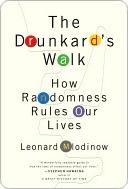More on this book
Community
Kindle Notes & Highlights
Which is more likely: that a defendant, after discovering the body, left the scene of the crime or that a defendant, after discovering the body, left the scene of the crime because he feared being accused of the grisly murder? Is it more probable that the president will increase federal aid to education or that he or she will increase federal aid to education with funding freed by cutting other aid to the states? Is it more likely that your company will increase sales next year or that it will increase sales next year because the overall economy has had a banner year? In each case, even though
...more
lawyers assign higher probabilities to contingencies that are described in greater detail.
By distorting our view of the past, the availability bias complicates any attempt to make sense of it.
The critics found that when they attempted to encapsulate wine quality with a system of stars or simple verbal descriptors such as good, bad, and maybe ugly, their opinions were unconvincing. But when they used numbers, shoppers worshipped their pronouncements. Numerical ratings, though dubious, make buyers confident that they can pick the golden needle
In fact, in recent years psychologists have found that the ability to persist in the face of obstacles is at least as important a factor in success as talent.
survival in Nazi concentration camps “depended on one’s ability to arrange to preserve some areas of independent action, to keep control of some important aspects of one’s life despite an environment that seemed overwhelming.
instead of searching for ways to prove our ideas wrong, we usually attempt to prove them correct.
“the human understanding, once it has adopted an opinion, collects any
instances that confirm it, and though the contrary instances may be more numerous and more weighty, it either does not notice them or else rejects them, in order that this opinion will remain unshaken.
“if several similar-sized firms entered a market together, small fortuitous events – unexpected orders, chance meetings with buyers, managerial whims – would help determine which ones received early sales and, over time, which came to dominate. Economic activity is… [determined] by individual transactions that are too small to foresee, and these small ‘random’ events could [ac]cumulate and become magnified by positive feedbacks over time.”9
The normal accident theory of life shows not that the connection between actions and rewards is random but that random influences are as important as our qualities and actions.
“many of life’s failures are people who did not realize how close they were to success when they gave up.
one important factor in success is under our control: the number of at bats, the number of chances taken, the number of opportunities seized.
For even a coin weighted toward failure will sometimes
land on success. Or as the IBM pioneer Thomas Watson said, “If you want to succeed, ...
This highlight has been truncated due to consecutive passage length restrictions.


